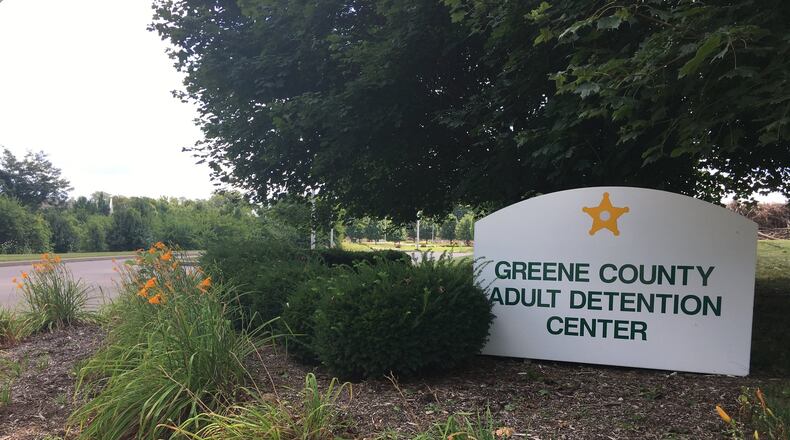The proposal calls for a 500-bed facility that would cost an estimated $70 million to build, which could be paid for through a quarter-percent sales tax increase over a period of eight to 12 years.
“Property owners shouldn’t have to cover everything,” Fischer said. “A quarter-percent sales tax would share the cost among everybody making purchases so it’s not just the property owners and it allows for other people come in to Greene County and help fund this project.”
The county currently has a sales tax of 1 percent, which generates more than $27 million a year for the county’s general fund, according to County Auditor David Graham.
A quarter-percent increase would result in more than $6 million a year in additional revenue, Graham confirmed.
Ohio law requires that a sales tax increase to pay for a new jail and/or its operations must be brought before the voters, according to County Administrator Brandon Huddleson.
Because of overcrowding, the Greene County Jail has been operating under a federal consent decree for more than 30 years, which results in the release of inmates daily, the sheriff has said. In a December 2018 state assessment, the jail was found to meet all essential standards but lacking in six important standards, including minimum square footage and noise level standards. Further, the jail has an actual capacity of 146 and the number of inmates that were being housed during the assessment was 137, but the jail is recommended to have a capacity for only 95, according to a letter to the sheriff from State Jail Inspector Stephen Holland.
The county hired Omaha-based HDR as a consultant in August 2018, a $177,000 contract, to conduct a jail needs assessment.
Greene County has an average daily population of 285 inmates for both the downtown jail and the adult detention center, and that is projected to increase to 366 inmates by 2035; the county needs to have a capacity of at least 420 beds to accommodate the increase, according to HDR’s report.
HDR’s report recommends abandoning the sheriff’s administration office, the adjacent jail facility in downtown Xenia and the adult detention center on Greene Way Boulevard, because they “do not meet the current needs of the citizens.”
Fischer is recommending that the ADC be converted into a rehabilitation facility that would be run by a third party. Having a larger facility for rehabilitation of substance abuse, mental health and other needs could provide a new jail-diversion option for judges.
“There’s obviously a need for different types of rehab in this area,” Fischer said. “If that facility is suitable to step people out of a jail facility into rehab and then step them through the process to be productive citizens again, then that would be a good thing.”
The county-owned vacant land across from the ADC and next to the county’s juvenile justice center on Greene Way is the potential location for the new jail facility and sheriff’s administrative building.
Estimated costs could change after the county hires an architect to design the facility. Fischer said a new jail could be modeled on the one being built in Warren County and recently constructed in Fairfield County.
Commissioners will need to decide whether to place the issue on the March 20, 2020 ballot by the December deadline.
Fischer said a local committee has been formed and will be meeting to explore all the options on the potential project. He said presentations will be made to the public before a decision is made.
“We have to do something because the old jail is not working,” Fischer said. “It’s not doing what it’s supposed to do. At some point, we’re going to have to start shipping the inmates to another county and pay another county to house the inmates.”
About the Author
